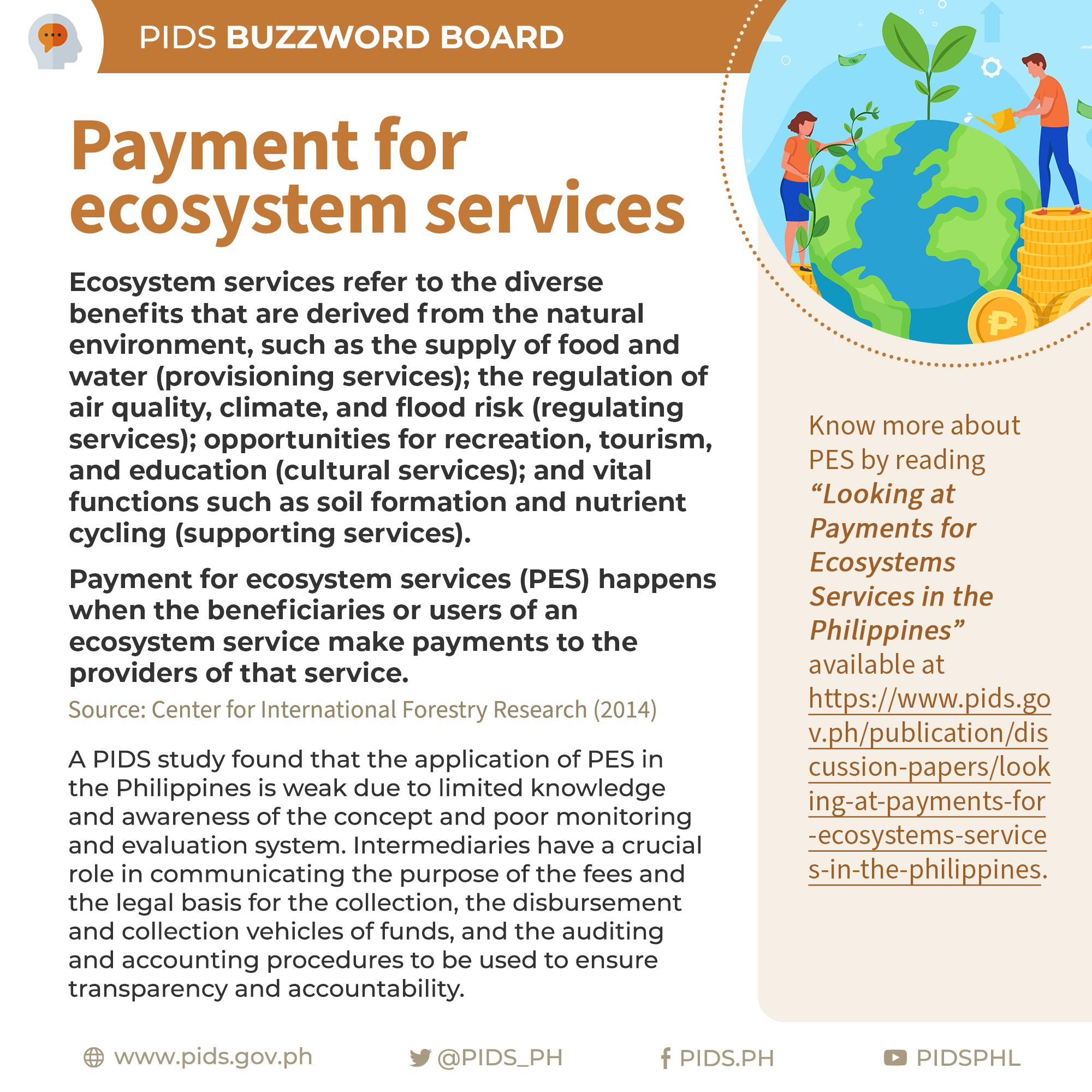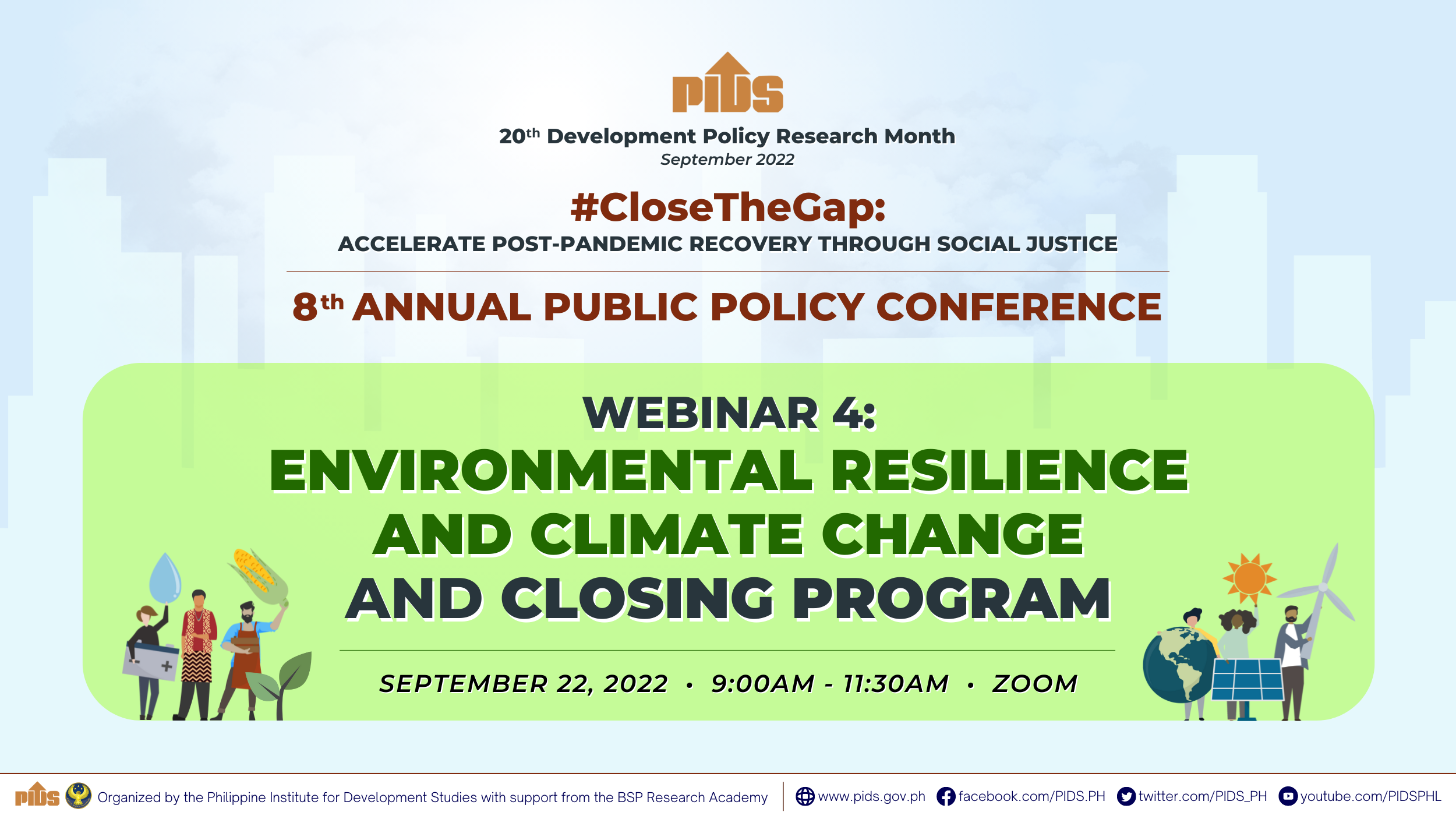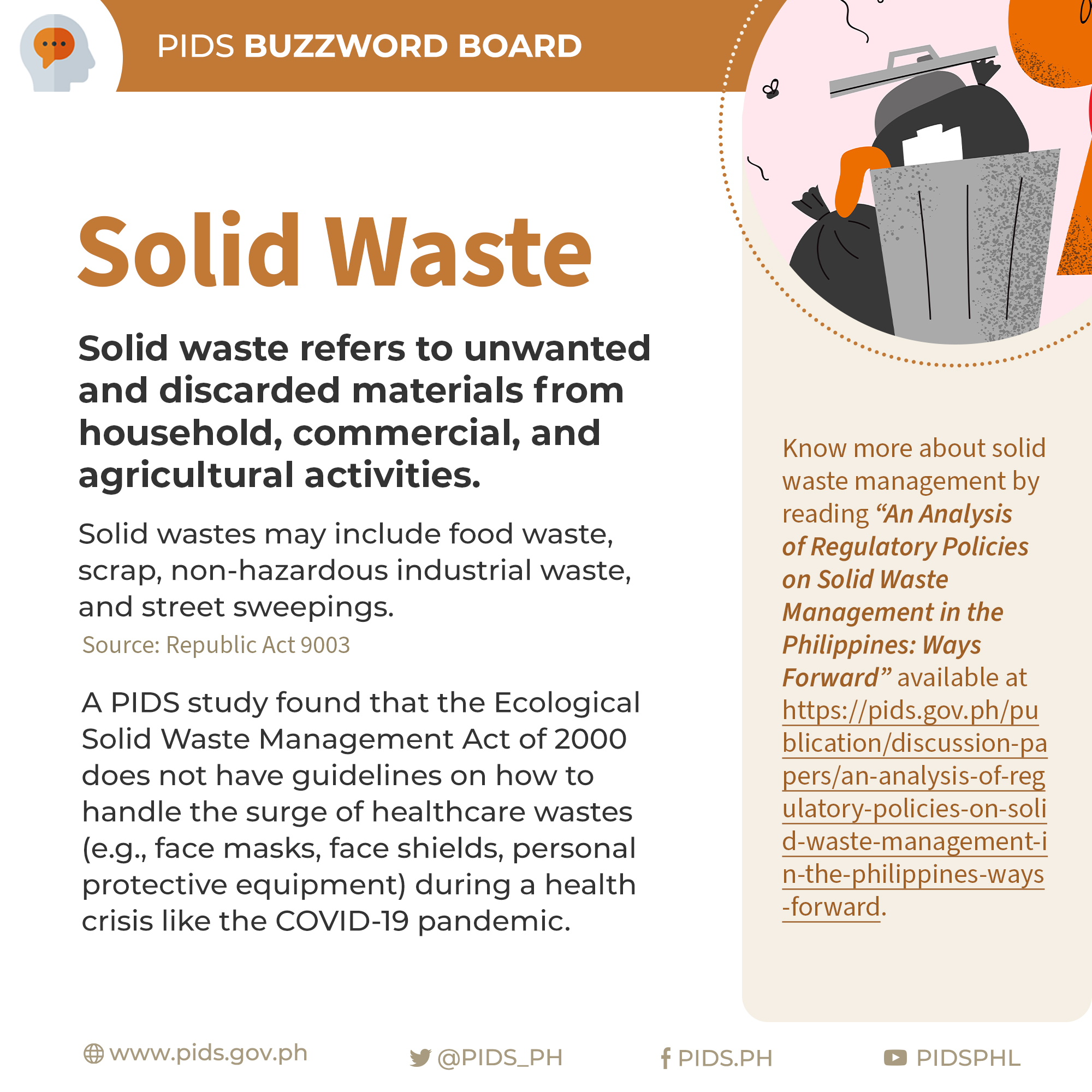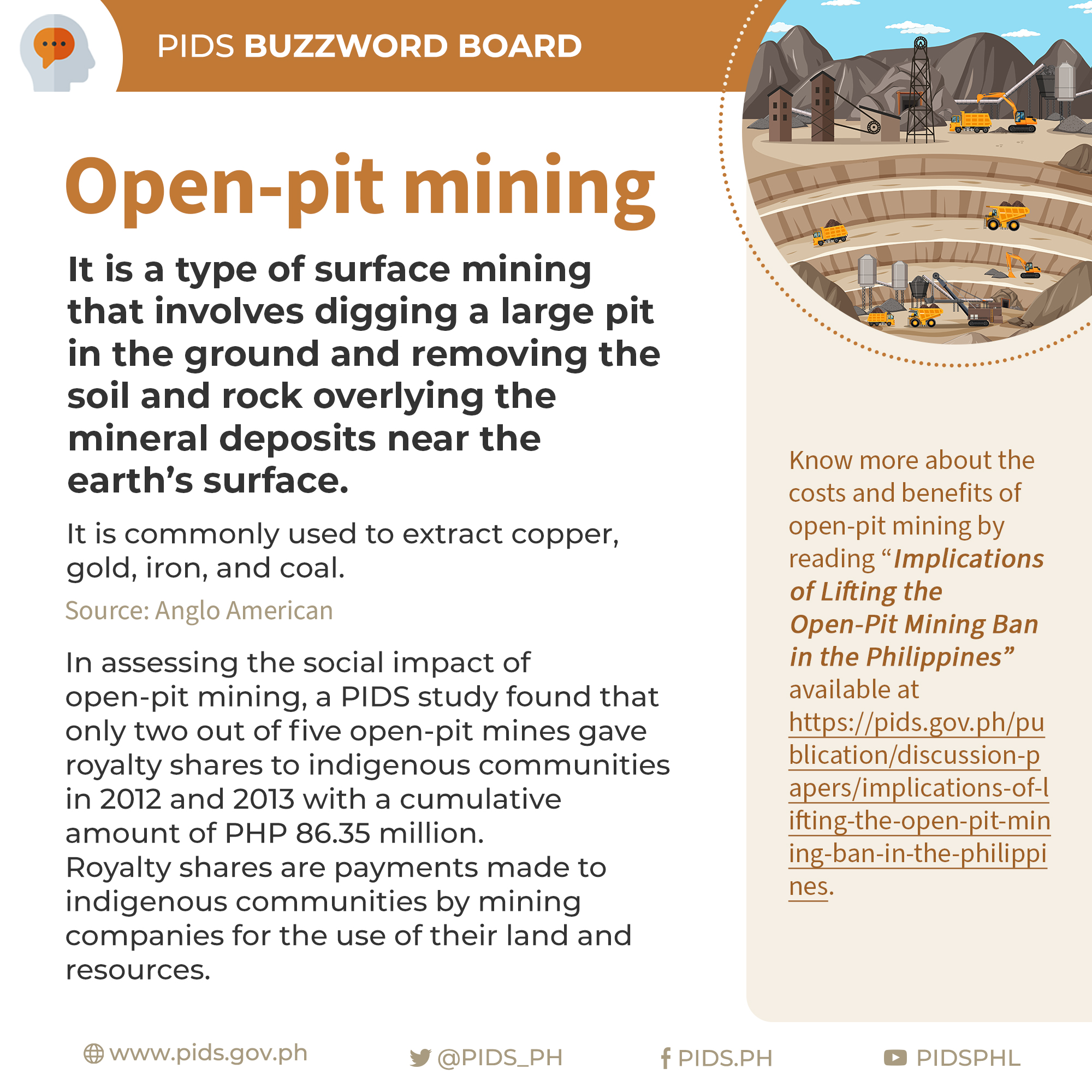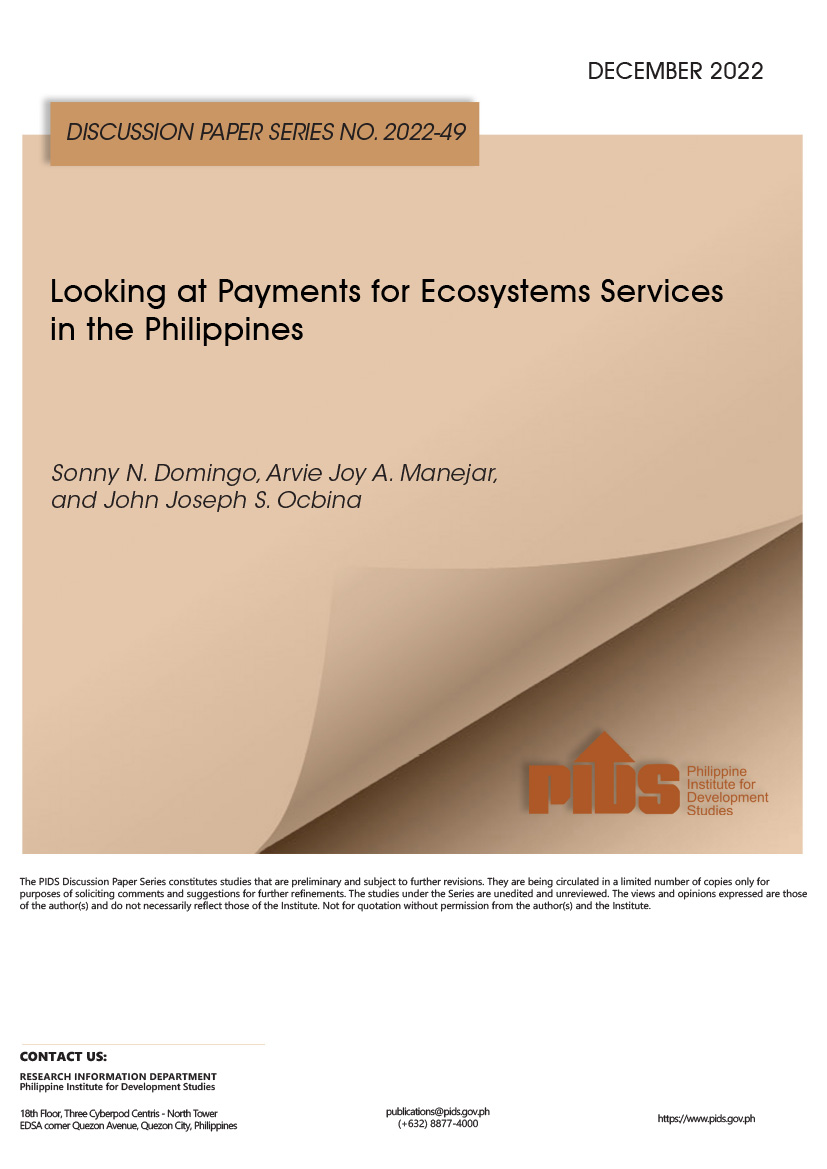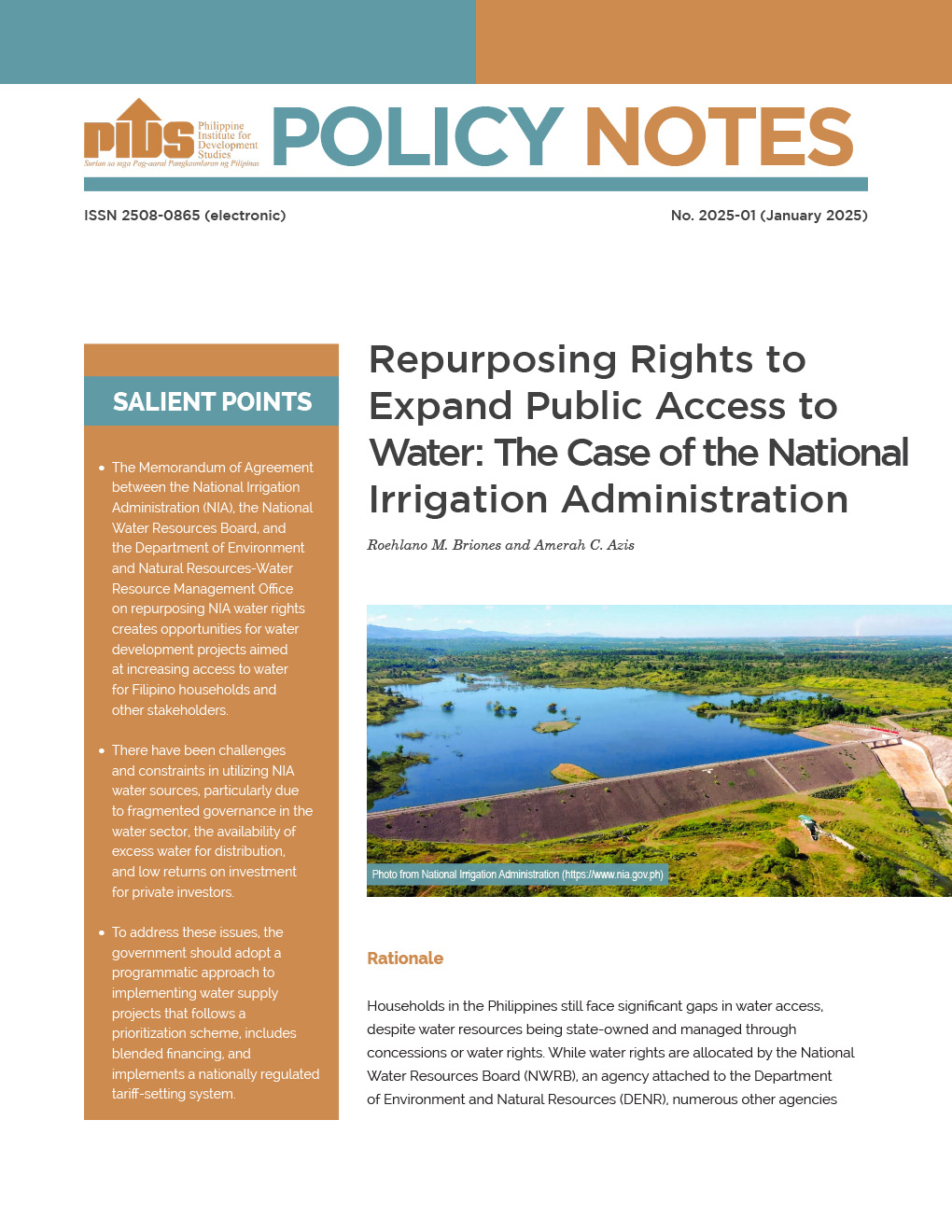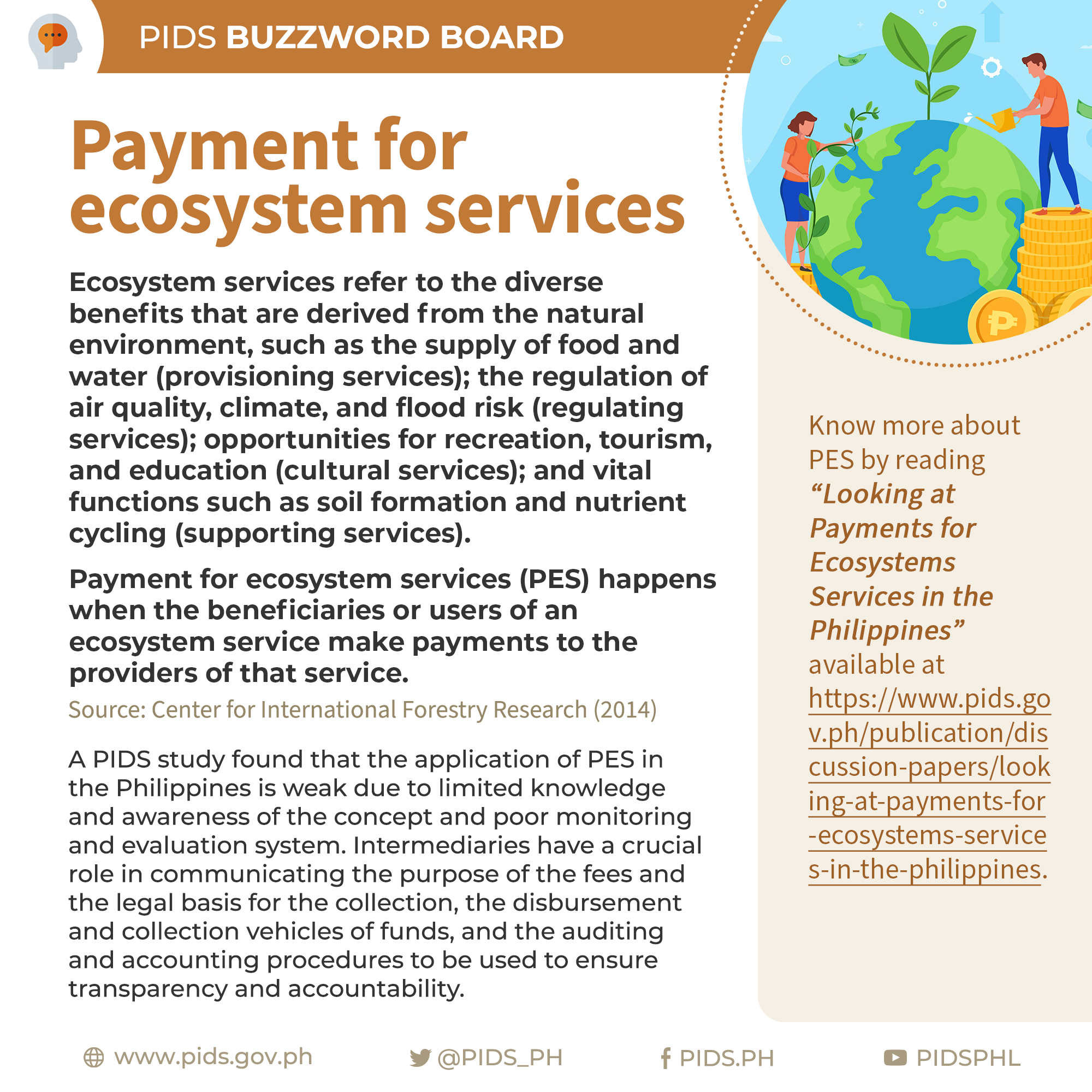
To familiarize everyone with key socioeconomic terms and concepts, we have this new social media series.
For this week, our buzzword is “payment for ecosystem services”.
Ecosystem services refer to the diverse benefits that are derived from the natural environment, such as the supply of food and water (provisioning services); the regulation of air quality, climate, and flood risk (regulating services); opportunities for recreation, tourism, and education (cultural services); and vital functions such as soil formation and nutrient cycling (supporting services).
Payment for ecosystem services (PES) happens when the beneficiaries or users of an ecosystem service make payments to the providers of that service.
Source: Center for International Forestry Research (2014)
A PIDS study found that the application of PES in the Philippines is weak due to limited knowledge and awareness of the concept and poor monitoring and evaluation system. Intermediaries have a crucial role in communicating the purpose of the fees and the legal basis for the collection, the disbursement and collection vehicles of funds, and the auditing and accounting procedures to be used to ensure transparency and accountability.
Know more about PES by reading “Looking at Payments for Ecosystems Services in the Philippines” available at https://www.pids.gov.ph/publication/discussion-papers/looking-at-payments-for-ecosystems-services-in-the-philippines.
